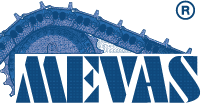How to import a used excavator?
We have a new website. Please visit mevas.net
Check our list for safe used machine import
1) Search for used heavy machinery only on well known websites. Important is where in your country and how quick you can purchase spare parts and service for a second hand excavator.
2) Ask supplier for true information about machine condition. Ask supplier which repairs are required. Ask for transport cost to next port.
3) Send a friend or an independent inspector to check the machine condition.
4) Ask seller if he can provide all required customs documents.
5) Check with the dealer all options for shipping such as RoRo or containerizing of machinery.
What security measures should a buyer take when purchasing used heavy machinery from abroad to avoid becoming a victim of fraud?
Purchasing used heavy machinery from abroad can be a significant
investment, and it's crucial to take precautions to avoid falling victim to
fraud or receiving a substandard product. Here are security measures a buyer
should take when buying used heavy machinery from overseas:
1. •Research the Seller•
- Verify the seller's legitimacy by checking their business credentials,
such as registration, licenses, and certifications.
- Look for online reviews, testimonials, and references from other buyers
who have dealt with the seller.
2. •Inspection and Due Diligence•
- Conduct a thorough inspection of the machinery before purchasing, either
in person or through a trusted third party.
- Obtain all available maintenance records, service history, and repair
documentation to assess the machine's condition.
- Ensure the machinery complies with the buyer's country's safety and
environmental standards.
3. •Verify Ownership and Title•
- Confirm that the seller has clear ownership and title to the machinery and
can legally sell it.
- Request and review all necessary ownership documents and titles, and
consult with legal experts if needed.
4. •Use Escrow Services•
- Consider using an escrow service to handle the financial transaction. An
escrow service will hold funds until both parties meet the agreed-upon terms
and conditions.
5. •Visit the Seller's Location•
- Whenever possible, visit the seller's location and inspect the machinery
in person.
- This allows you to see the equipment firsthand and verify its condition.
6. •Request Photos and Documentation•
- Ask the seller for detailed photos of the machinery from various angles,
including close-ups of critical components.
- Request all relevant documentation, including the machinery's serial
number, model, and any maintenance or repair records.
7. •Get a Professional Inspection•
- If visiting the seller is not possible, hire a professional inspector or
an independent third-party inspection service to evaluate the machinery.
- Ensure the inspector provides a comprehensive report on the machinery's
condition.
8. •Use Secure Payment Methods•
- Avoid making payments through untraceable or non-secure methods. Use
reputable and secure payment options, such as bank transfers, letters of
credit, or payment platforms with buyer protection.
9. •Contract and Legal Advice•
- Draft a detailed contract that outlines the terms and conditions of the
sale, including warranties, responsibilities, and dispute resolution
mechanisms.
- Seek legal advice to review and help draft the contract to protect your
interests.
10. •Check Import Regulations•
- Understand the import regulations and customs procedures for bringing
heavy machinery into your country. Ensure you comply with all legal
requirements.
11. •Beware of Red Flags•
- Be cautious if the deal seems too good to be true or if the seller is
pressuring you to make a quick decision.
- Watch for suspicious payment requests, discrepancies in documentation, and
inconsistent information from the seller.
12. •Consider an Export Inspection Certificate•
- In some cases, you can request an Export Inspection Certificate from a
reputable inspection agency in the seller's country. This can provide
additional confidence in the machinery's condition.
13. •Use Reputable Brokers•
- If you're working with a machinery broker, ensure they have a solid
reputation and are transparent in their dealings.
14. •Insurance•
- Consider purchasing insurance for the shipment and the machinery itself to
protect against potential damage during transport.
Taking these security measures can significantly reduce the risk of fraud
when purchasing used heavy machinery from abroad. It's essential to exercise
caution, do your due diligence, and seek professional advice when necessary
to safeguard your investment.
Downgrading of Engines before import, DPF removal
Read our article about DPF and AdBlue Removal for heavy equipment
We have a little blog where steadily info about our inspection work is posted. Please visit the site for info and entertainment: https://mevas.net/mevas-blog
